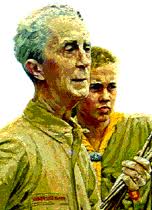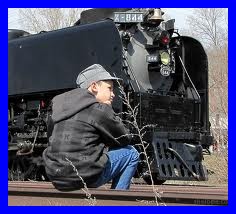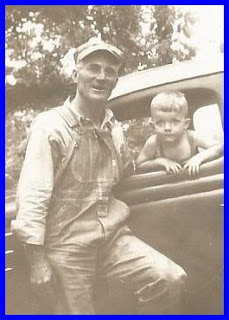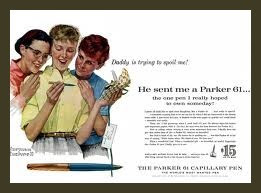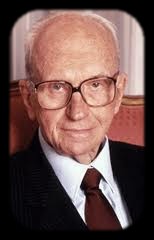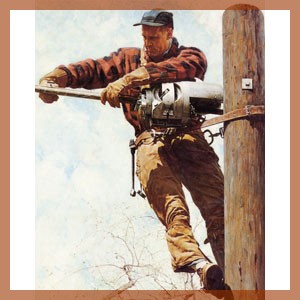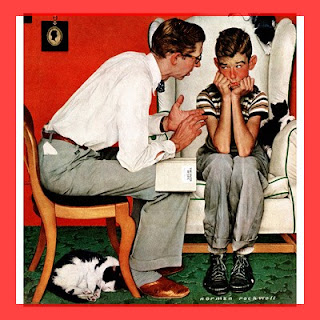In the thirty years I spent
with my Daddy, I saw him embarrassed only three times.
The first was when he delivered a Wednesday evening Bible lesson
at church. He didn't find public
speaking any easier than I did. But we both learned.
The second time I saw him embarrassed was at skating
rink. He, mother, and two other couples were chaperoning a group of kids.
As the night grew older, Daddy rediscovered his old skating skills.
According to family stories, he had worked, as a kid instructor, in a
huge skating rink in Birmingham.
Most of the group was sitting, watching the few skaters still on
the floor. One of them, an eight year old, blonde haired girl, was
chugging around the outside edge of the rink like The Little Engine that could.
The rest of the skaters were on an tighter track, moving at a faster
pace, but not anything out of the ordinary.
Suddenly a scream, followed immediately by the sickening sound of
a young butt slapping the wooden floor, silenced the onlookers. The
little blonde was down. Daddy had just rounded a curve and only the empty
straightaway was between him and the downed damsel. I saw his eyes flash,
and he was instantly transformed into a Bay Area Bomber. He literally leaped forward five
feet landing in a ground eating low crouch. In less time than it takes to
tell it, he was at the accident scene, moving fast. He bent even lower,
scooping up the little girl, and without slowing, set her on her skates,
pointing the way she had been moving before she fell.
However, Daddy didn't account for her cap, which she had lost in
the crash. Just as he released the little girl, his right skate ran over
the cap, and instantly he was on his backside, sliding toward the railing.
Obviously, it wasn't his first high speed crash. As he slid
under the railing he grabbed it, pulled himself up, and with little loss of
speed, he was upright and skating. Seconds later, he was skating slowly
beside the little blonde who looked up at him like he was the reincarnation of
Sir Lancelot - if the legendary knight blushed. It was at least thirty
minutes before the bright red left Daddy's cheeks - the applause from those watching
didn't help, but he kept skating until he forgot the incident.
And then there was the third time. I must have been ten,
maybe eleven, when, one morning after breakfast, he told me it was time for us
to have "the talk." Then he told me that would happen that very
evening after supper. I spent a good part of the day thinking of all of
the things that he might be planning to talk to me about. Finally I gave
up, having learned years before it is never smart to give up a position until I
knew I had been discovered. The truth is, I could have examined every
possibility I knew and never guessed that the conversation was going to be
about girls, and sex, and "staying pure" for my wife - hell, I was
ten years old, eleven tops.
At the appointed time, Daddy told me to meet him in the living
room, which by the way, was never used, except when company came. I sat
in the empty room for a few minutes, taking a last minute mental inventory of
various events I knew could be the reason for this summit meeting.
Finally the door opened, and Daddy entered with a plain wrapped package
under his arm and the same red countenance I'd seen on his face at the skating
rink a few months earlier. He sat beside me on the sofa, took a deep
breath, and began removing the brown paper from what turned out to be a book.
I glanced at the cover, and picked
up three words; "reproduction, sex education, and Christian,” though
probably not in that order.
The slot machine in my head
clattered and the dials began spinning. One by one they stopped, a bell
in my head rang, and I got it. This was the sex talk. I glanced at
daddy, who didn't make eye contact, but rather focused on the book as he began
explaining it to me.
I couldn't believe this was my Daddy. He'd been overcome by
a book. He managed to stutter and stammer his way through a half-hour
presentation, closed the book, and managed to spit out his last comment,
"And, Son, that's why you can't do "the thing" with a girl until
you're married. Now, go finish you're homework."
I was glad "the talk" was over, but not nearly as glad
as Daddy was. I never told him that I didn't understand a word that he
read from that book, and he never mentioned sex again. School started a
few weeks later, and I came into possession of a small, black and white comic
book called "Maggie and Diggs." I had to fight to retain
possession of it, but that was a small price to pay to learn the
"real story" about sex.
Facts of life. I'm not sure we handle it any better these
days, regardless of the information that is in our faces every day. I'm
sure Maggie and Diggs, or the equivalent, still furnishes the basic information
to today's youth. In a poorly thought out strategy to make up for my
"talk" with Daddy, I gave my son a beautifully, illustrated copy of
the Kama Sutra, and what I considered a beautiful, presentation on the subject.
That turned out to be far more information than he needed or wanted.
Tomorrow I'll post the twenty-second in the Norman Rockwell
inspired blog series. I call it Wichita Lineman and this is the painting
that I'll use to illustrate it.




